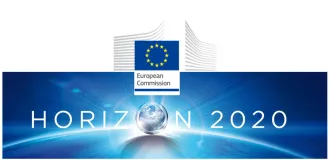POCITYF
Relevant project information
Dates
Project website
Role of CIRCE
Grant agreement number
Funded by

Description and objectives
POCITYF counts on cities such as Évora and Alkmaar along with Granada, Bari, Celje, Ujpest, Ioannina and Hvidovre to address the urgent need to create positive energy blocks and districts, making their urban environment more affordable, healthy and reliable. Demonstrating 10 integrated solutions with 73 innovative elements rooted in existing Urban Information Platforms, POCITYF quantifies their value and connects the interests of multiple stakeholders in innovative business models.
It works across 4 energy transition pathways, focusing on existing and new building transformation, grid flexibility strategies, storage systems and e-Mobility integration. The objective is to provide a validated roadmap for sustainable cities in Europe and worldwide, enabling the expansion and replication of these solutions.
Value proposition
- Holistic Assessment of Challenges and Objectives: CIRCE will conduct a holistic assessment to analyze how the project addresses the challenges and objectives established during the preparation phase in Work Package 1. This approach ensures a complete understanding of POCITYF's contribution to the energy transition.
- Evidence Base for Maximizing Impact: CIRCE's evaluation will provide a solid evidence base that will maximize the impact of the POCITYF project on the creation of PEBs and PEDs. This ensures that the implemented solutions are aligned with the energy transition goals and have a significant impact on the smart city landscape.
- Information for Designing Future Implementations: The CIRCE assessment will not only inform the present project, but will also provide crucial information for the design of future implementations of integrated smart city solutions. This strategic approach accelerates the large-scale deployment of similar solutions in the European Union.
- Cost Benefit Analysis (CBA): CIRCE will perform a detailed Cost Benefit Analysis (CBA) to assess the overall socio-economic benefits and drawbacks of the PEDs/PEBs and network solutions implemented in the EET#1-4 project. This will provide a clear understanding of the feasibility and economic impact of the solutions.
- Social Impact Study: In addition, CIRCE will conduct a specific social impact study, examining how citizen participation and engagement in the energy transition process influences the community. This inclusive approach ensures a comprehensive assessment covering both economic and social aspects of the project.


